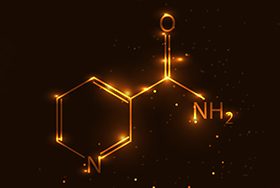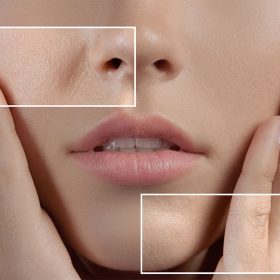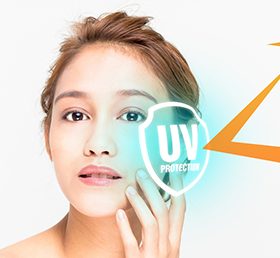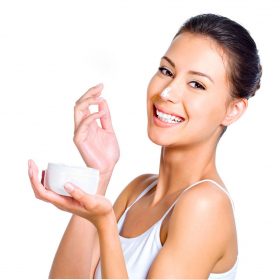Skincare
Niacinamide: That Nice, notable, nourishing ingredient!
Niacinamide – The new buzz word in Vitamin skincare, a superstar you’ve been missing out on.
The new year marked a new beginning for all of us. Hence there can be no better time than the present to make sure your skincare arsenal is packed with trendy products and ingredients.
Every few years, a new “it” ingredient starts picking up the heat – even if it’s not new at all. And within the blink of an eye, it becomes that magic ingredient everyone looks for to do miracles for their skin. This time it’s niacinamide.
It is a form of vitamin B3 that’s been a fixture in commercial cosmetic formulations and dermatologists’ offices for ages. Recently, though, it’s been popping up in all types of products as a recognizable and desirable skin-care ingredient.
But if you’re not quite certain about what it is or what it’s doing in your skincare products, you’re not alone. Here’s what you should know before you add it to your skin-care routine.
What Is Niacinamide?

Niacinamide or nicotinamide, is a form of vitamin B-3, an essential nutrient. B-3 deficiency can lead to many disorders. Including that of the skin, kidneys, and brain. Taking niacinamide can help prevent B-3 deficiency. It supports many cellular processes. It is found primarily in the following:
- Yeast, Milk
- Meat, Eggs & Fish
- Green vegetables
- Beans, Cereal grains

And Believe me but there’s much more to this nutrient. Especially when we talk about general skin health. Even though more research is required on this topic. Still, topical niacinamide may help treat certain skin conditions, including acne and eczema. And since it’s water-soluble, your body doesn’t store this vitamin. Because of this very reason you need to eat nicotinic acid or niacinamide daily. Haven’t you heard people say don’t be vita-MEAN to your VITAMINs??
Getting the most from Niacinamide
Now that you know a little about this smart ingredient, let’s dive into what good can it offer to you?
If niacinamide is involved in the most important cell functions, then it should cure anything and everything, right? Well, no! I mean just think for a moment that if every cellular process could be perfected with vitamin supplements, who would need antibiotics or radiation therapy. That said, oral and topical niacinamide may have some real benefits:
1. Anti-inflammatory properties
Niacinamide’s anti-inflammatory properties make it an attractive treatment for skin conditions marked by inflammation, like acne.

2. Immunity
Niacinamide helps build keratin. It is a type of protein that makes sure your skin is fresh, firm, and healthy.
3. Minimizes pore appearance
This is for all the stressed people out there who want a smooth, flawless complexion. If large pores are ruining your chances of achieving that goal, then this should be your go-to ingredient. Niacinamide minimizes pore appearance. And keeps the skin smooth and moisturized. You can also call it a secret of natural reduction in pore size.

4. Protection against UV rays
Not only the above-mentioned benefits but most importantly, it protects against sun damage. Niacinamide can concurrently rebuild healthy skin cells while also protect them from damage caused by UV rays.
5. Skin cancer prevention
Ask any dermatologist you trust, what niacinamide does best, and the very first thing they’ll say is probably “skin cancer prevention.”
Some more benefits of Niacinamide are:
- Protects against oxidative stress
- Treats acne
- Regulates oil
- Treats hyperpigmentation
- Minimizes redness and blotchiness
Are skin products preferable over food and supplements?
This is a very common question that pops up in everybody’s mind. Worry not. You have come to the right place. To be completely honest, eating a balanced diet is the best way to get micronutrients such as vitamin B-3. One should only take supplements under medical supervision to treat deficiency.
When it comes to general skin health, you can get some of the benefits of this vitamin from the foods that you consume.
However, there’s no way to guarantee that the nutrients in your diet are reflecting on your overall skin health. The only way to ensure that it is targeting your skincare concerns is to use it topically.
Is there any risk of side effects?
Topical niacinamide is generally considered secure to use.
Individuals who have already existing allergies may be more likely to experience an allergic reaction. The reason being- niacinamide can cause your body to release histamine.
We suggest to avoid widespread allergic reactions and product sensitivities by doing a patch test:
- Use a dime-sized amount of product on your forearm.
- Wait for a day.
- By any chance, if you experience redness, itching, or swelling, wash the area and discontinue further use.
- If you don’t experience any side effects, it should be safe to apply elsewhere
What should you look for while selecting a product?
Niacinamide concentration can be different in various products, though most formulations are 5 percent or less.
A few reports suggest 5 percent formulas are effective in treating hyperpigmentation and damage related to UV rays.
In case you have sensitive skin, you may want to start with a lesser concentration. Formulas with 2 percent of this vitamin may help ease symptoms of eczema and similar conditions.
Verdict

Niacinamide is a dark horse when it comes to turbo-charged brightening benefits. Oh, and French girls swear by it. In a nutshell, it is a powerhouse ingredient for brightening and hydration. The best part is that anyone who wants their skin to be bright or prevent aging can use it. Even twice a day. Not only that it is also good to combine it with other stable and powerful antioxidants for better results.
What are you waiting for? Ain’t all these benefits enough to compel you to get your bottle of Niacinamide right away?!

